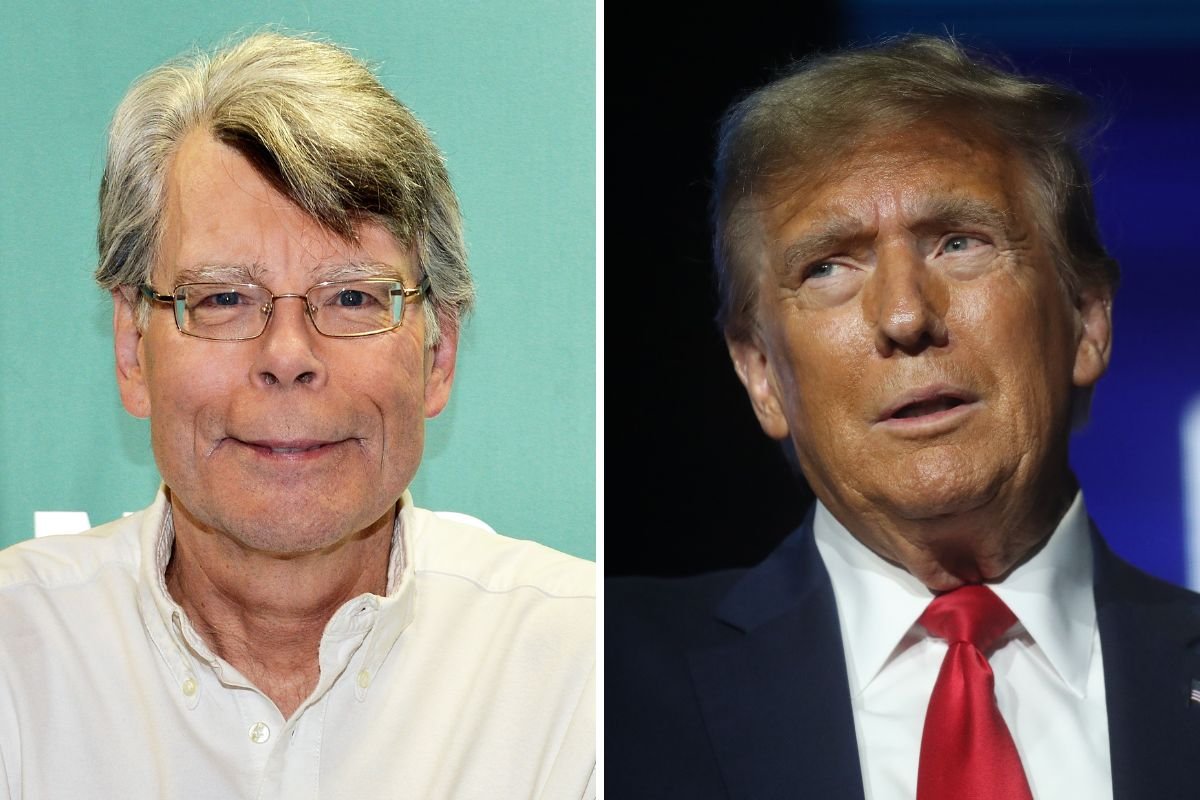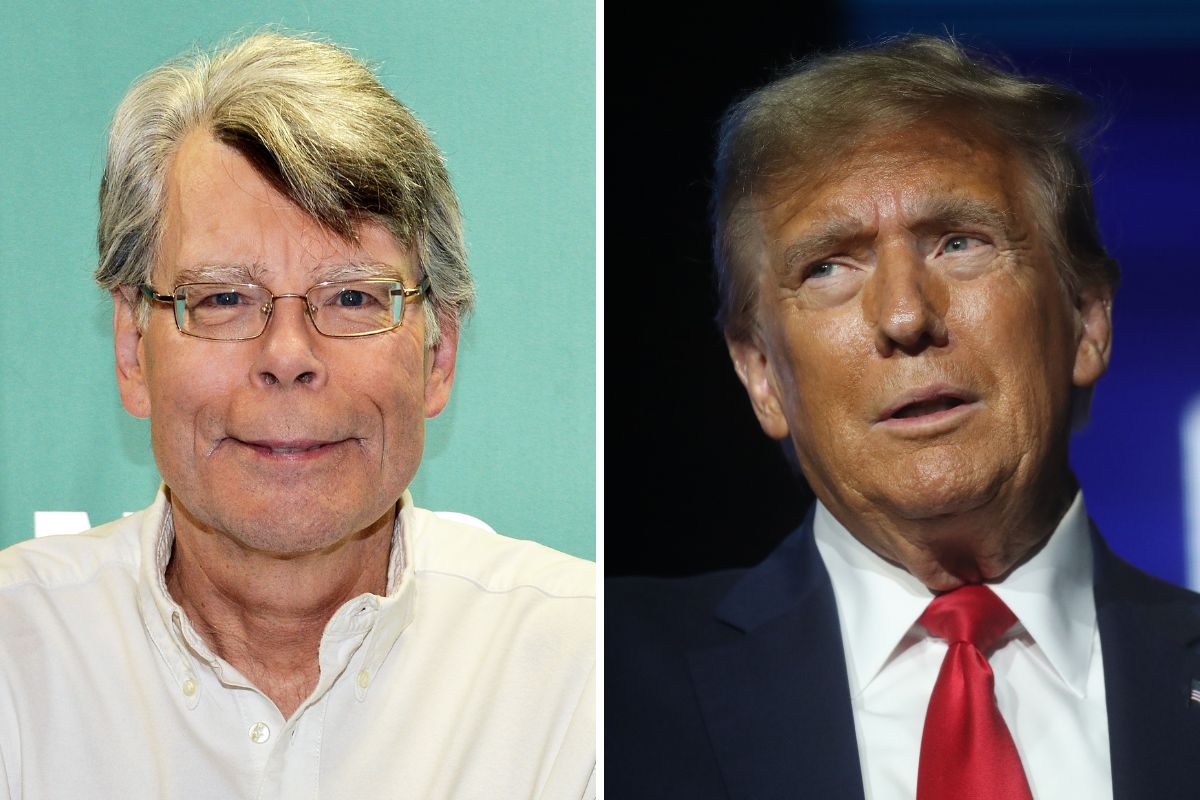Horror author Stephen King has criticized Donald Trump, accusing him of having ties to Russia.
Ever since he ran for president in 2016, the FBI, Special Counsel, and multiple United States congressional committees have found numerous suspicious connections between Trump associates and Russian officials. These connections were made as part of their investigations into Moscow’s interference in the 2016 U.S. elections.
The official document that details the conclusions and results of the investigation conducted by former Special Counsel Robert Mueller is called the Mueller Report. It found that “the evidence was not sufficient to support criminal charges.” The report was submitted on March 22, 2019, and, on April 18, 2019, the Department of Justice made a redacted version of it available to the public.
However, on April 19, 2019, The New York Times wrote that “Donald J. Trump and 18 of his associates had at least 140 contacts with Russian nationals and WikiLeaks, or their intermediaries, during the 2016 campaign and presidential transition.”
Adding further fuel to the fire, during a rally in South Carolina on Saturday, Trump said he would “encourage” Russia to attack NATO countries falling short of guideline financial contributions to the alliance.

From left: Author Stephen King signs the copies of his book “Revival” at Barnes & Noble Union Square on November 11, 2014, in New York City; and Donald Trump arrives at the National Rifle Association presidential forum at the Great American Outdoor Show on February 9, 2024, in Harrisburg, Pennsylvania. King has criticized Trump for his alleged involvement with Russia.
Slaven Vlasic/Spencer Platt/Getty Images
Now King has taken to X, formerly Twitter, to criticize Trump—and his post has proven to be divisive. Newsweek contacted a spokesperson for King and Trump for comment via email Tuesday.
“Trump’s ties to Russia and Putin are well known. Basically, Trump is a traitor to the American way of life that our soldiers have died for,” King wrote in the post that has been viewed more than 5.1 million times.
Trump’s ties to Russia and Putin are well known. Basically, Trump is a traitor to the American way of life that our soldiers have died for.
— Stephen King (@StephenKing) February 11, 2024
People have taken to the comments to share a similar sentiment to the novelist.
“Absolutely. I wish people would state this fact more often. Here’s to you, Sir, and to how you roll. Yes. God Bless America,” one person wrote.
“Trump is as anti-American and Anti-Republican as you can get. Republican voters have been had,” posted another.
A third added: “Trump is undermining NATO even at a time when China is undertaking a global expansion of its military. That alone should disqualify him to be President.”
However, others slammed King for what he said. “This post is why you’re one of the best fiction writers,” one X user commented.
“Vladimir Putin is more trustworthy than Joe Biden. That said, Stephen King is blatantly lying about President Trump. Trump was exonerated by the Mueller investigation about Russia. As for our soldiers, it’s Joe Biden who is getting them needlessly killed in the Middle East,” someone else wrote.
“For a writer, you provide very little supporting evidence for your main premise. Stick to the fiction,” posted another X user.
Trump’s remarks on Saturday that he would encourage Russia to attack NATO members that don’t make the required financial commitments to the alliance set off a furious outcry.
The Republican presidential nominee frontrunner appeared to recall a conversation with an unnamed politician he described as “one of the presidents of a big country.” Trump said the anonymous leader had asked whether the U.S. would protect the NATO alliance if Russia attacked. During his time in office, Trump repeatedly threatened to withdraw the U.S. from NATO, saying it was a financial drain and that other countries weren’t meeting the minimum spending requirement of 2 percent of GDP.
“I said, ‘You didn’t pay, you’re delinquent?'” Trump told the crowd on Saturday. “In fact, I would encourage them to do whatever the hell they want. You got to pay. You got to pay your bills.”
The White House criticized the remarks, denouncing the former president’s comments as “appalling and unhinged.”
“Encouraging invasions of our closest allies by murderous regimes is appalling and unhinged—and it endangers American national security, global stability and our economy at home,” said White House spokesperson Andrew Bates.
Uncommon Knowledge
Newsweek is committed to challenging conventional wisdom and finding connections in the search for common ground.
Newsweek is committed to challenging conventional wisdom and finding connections in the search for common ground.

